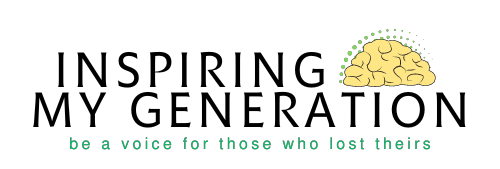Body Image Recovery and Eating Disorder Healing: How I Learned I Am Enough
Inspired by this week’s episode of Normalize The Conversation with Lisa Schlosberg
Lisa’s story was not just her story. It was mine, and many of yours, too. It is our story in a world where beauty and worth are defined by a number.
I was five years old when I first started struggling with my body image.
At the time, I was a competitive cheerleader in a cropped top and mini skirt uniform. Someone commented on my stomach hanging over my skirt, and it cut through me in a way I could not yet vocalize.
One sentence rewired the way I saw myself for the next two decades.
From that moment forward, my body was not something I lived in; I never honored or cared for it. It became something I critiqued. Something I punished. Something I hated.
Note to Reader: Your body is not your enemy.
There was a girl named Jordan on my cheer team who constantly told me her weight.
For the next five years, she reminded me she was lighter than I was; therefore, she was more deserving to be a flyer. She even insisted we should subtract eight pounds for our heads — “Your head’s weight doesn’t count.”
Those words reinforced the idea that my body was shameful. That growth itself was wrong.
Puberty was my worst nightmare. Self-harm picked up, and you never saw me without a hoodie or wrist braces covering scars.
No one noticed. Why would they? No one was talking about the emotional impact. Only physical strength, stamina, and appearance.
Note to Reader: You deserve to be seen, heard, and safe.
I remember watching Bring It On: All or Nothing and hearing:
“Pacific Vista has never had a fat cheerleader.”
They took her chocolate bar away and made her run laps, even though her body was healthy, muscular, and strong.
The message was clear: To be socially acceptable as a cheerleader, you had to be extremely thin.
With messages like this surrounding me every day, I became terrified of growing. Imagine being a child, wishing you could stop existing in your own body. That fear became the foundation of how I lived.
Note to Reader: You are allowed to grow. You are allowed to exist fully in your body.
I remember my first “diet.”
Salads from McDonald’s became my meals, except I didn’t even like lettuce. So, I picked at the cheese and grilled chicken, calling it dinner.
By nine years old, anorexia had taken over. You could see my ribcage. And yet no one asked why I wasn’t eating. It was considered normal, even healthy, to be small enough to fly. No nine-year-old should ever equate lettuce with worth.
Note to Reader: Your value is not what you eat or weigh.
I spent most of my youth in tears, yet no one asked what I was feeling.
Instead, I heard: “Grow up. Get over it. Big girls don’t cry.”
What I never heard was: “Are you okay?”
By thirteen, my body was breaking under the weight of both cheer and perfectionism. I broke bones, suffered severe migraines, and spent time in hospitals, only to be told I needed to toughen up. Coaches yelled at me, belittled me, and even threatened to kick me off the team.
Cheerleaders sucked it up. Broken bones were my fault for not working out enough to be stronger. That is what I believed.
Throughout my life, the fear of not being enough spilled into everything I did.
I had to be perfect in school. Perfect in cheer. Perfect at home. Perfect in the way I smiled at the world.
Perfection became my survival strategy. But inside, I wasn’t okay.
At seventeen, my meals were cucumbers and half a bell pepper. I spent hours at the gym, punishing my body, desperate to be thin enough. Worthy enough. Lovable enough.
My body was shutting down. My skin lost its color in patches. My kidneys began to fail. And still, people complimented me on my abs and my prom dress.
Praise for being skinny felt like praise for dying.
Note to Reader: You deserve praise for living, not disappearing.
That is what diet culture does.
It confuses pain with pride. It convinces you that disappearing means winning. It normalizes abuse as discipline.
It took a long time to learn that it was never my body that was the problem.
When Lisa shared about crying on the gym floor, realizing she had an eating disorder, I remembered my own breaking point.
I was on the floor vomiting from exhaustion. Unable to eat without getting sick. Unable to make it through a day without almost passing out. That was the moment I had to admit:
This is not healthy. This is not controlled. This is not who I want to be.
The truth is, eating disorder recovery is not simple.
I still struggle with thoughts of restriction. I still have moments where I hate my reflection. Healing from diet culture is a process, not a destination.
Note to Reader: Recovery is messy. And it is worth it.
But here is what I know today that I didn’t back then: Your body is not the enemy. Your worth is not a number. You deserve to take up space. You deserve to be here.
Diet culture told me I had to be less. Healing reminds me every day that I am already enough.
There is so much more to Lisa’s story, moments that cracked me wide open and gave me language for both the pain and the hope.
If you’ve ever struggled with body image, with food, or with the voice that tells you you’re not enough, I hope you will take the time to listen.
The Truth About Diet Culture: My Journey Through Obesity, Restriction, and Recovery with Lisa Schlosberg is available now on Spotify, Apple Podcasts, and wherever you listen.

